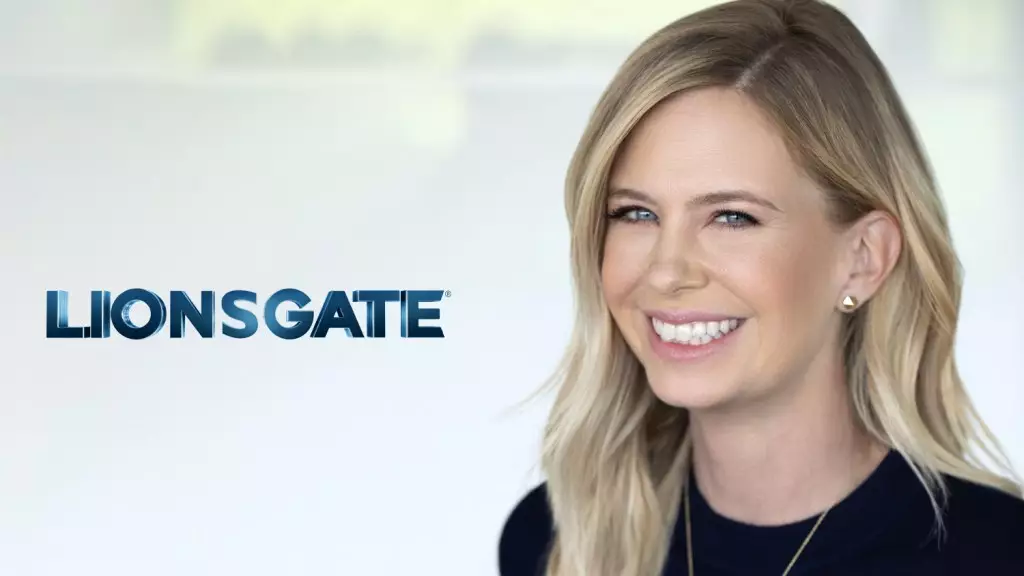The recent elevation of Erin Westerman to president of Lionsgate Motion Picture Group isn’t just a standard corporate move; it reveals a strategic gamble that could redefine the studio’s future. In an industry riddled with unpredictable shifts, Lionsgate’s decision underscores a desire for bold, centralized leadership capable of steering the studio through turbulent waters. But is this an intelligent maneuver or a risky overreach? Much hinges on Westerman’s capacity to translate her proven creative instincts into sustainable success amidst a climate of changing consumer tastes, streaming wars, and film franchise fatigue.
This leadership change also coincides with the departure of Nathan Kahane, whose exit at year’s end signals a potential turning point. Kahane’s tenure was characterized by a focus on franchise development and hit-driven projects; Westerman’s appointment suggests a shift towards a more visionary, tightly controlled creative process. Yet, whether her foresight will be enough to maintain Lionsgate’s relevance in a highly competitive marketplace remains to be seen. Will her elevation be a masterstroke that propels Lionsgate into a new era of blockbuster creativity, or will it reveal internal fragility in a studio that’s long struggled with consistent box office performance?
The Weight of Expectations and the Pressure to Deliver
Westerman’s track record demonstrates a keen eye for storytelling and talent, yet her rise also amplifies the studio’s pressure to produce hits that resonate both commercially and culturally. Overseeing a slate that includes high-profile projects like the “Now You See Me” franchise, the upcoming “The Hunger Games” prequel, and multiple ambitious in-development properties, she embodies Lionsgate’s hope to find a new blockbuster golden age.
However, the challenge isn’t merely about chasing hits; it’s about balancing creative authenticity with audience expectations in an era where viewers are increasingly skeptical of franchise fatigue and formulaic cinema. Westerman’s influence seems to lean toward cultivating properties with potential for cultural longevity — an intentional choice that might serve Lionsgate better than short-lived box office spikes. Her leadership style, marked by intelligence and approachable authority, suggests she’ll prioritize quality storytelling, but the proof lies in the pudding: can Lionsgate develop original, compelling films that stand out amidst market saturation?
The Illusion of Stability and the Reality of Industry Volatility
While the studio’s recent announcements encompass an array of projects—ranging from superhero remakes and manga adaptations to horror reboots—these are, at their core, familiar escapes designed to lure audiences back to theaters. But given the financial pressures and the inevitable shift toward streaming dominance, it’s naïve to assume that large franchises alone will guarantee long-term stability for Lionsgate.
Westerman’s experience with franchise hits like “John Wick” and “The Hunger Games” indicates a strategic emphasis on dependable properties. Yet, relying heavily on franchise continuations and reimaginations risks turning the studio into a serialization factory, undermining the innovative edge necessary for survival. It’s a delicate balancing act: capitalizing on established IP while daring to push boundaries with fresh narratives. The true test of her leadership will be whether she can foster a culture that values both heritage and innovation without succumbing to complacency or market short-termism.
The Future of Lionsgate Lies in its Willingness to Rethink and Reinvent
In a broader sense, Lionsgate’s current path reveals an industry at an inflection point, where the old formulas no longer guarantee success. Westerman’s ascent could be more than a symbolic change; it’s a signal that Lionsgate is attempting to position itself as a studio not just riding the coattails of franchises but evolving creatively within the shifting cinematic landscape.
Whether she is the visionary leader who can reinvent the studio’s identity or merely a stopgap appointed to maintain the status quo is something only time will reveal. Nonetheless, her rise underscores an essential truth: in Hollywood today, leadership isn’t just about guiding projects but about embodying a strategic, adaptive mindset capable of navigating industry upheavals. For Lionsgate, that makes Westerman’s new role both an exciting opportunity and a formidable challenge that will test her true mettle.



Leave a Reply